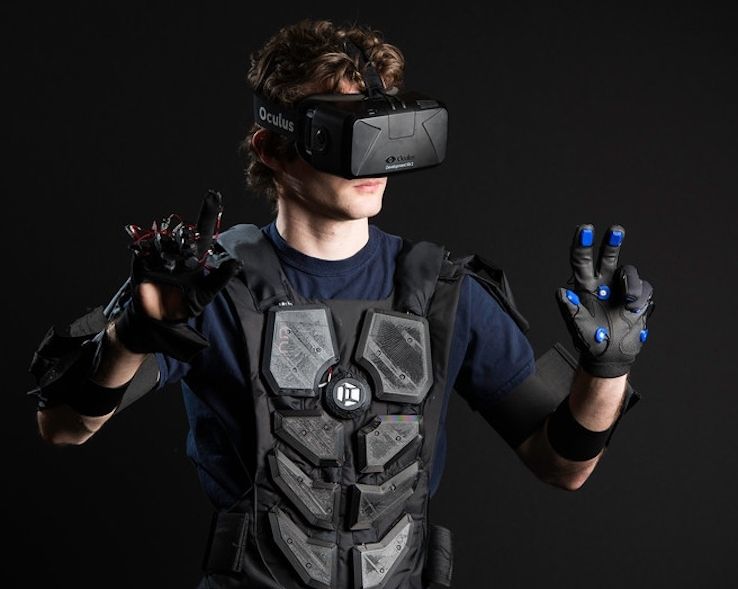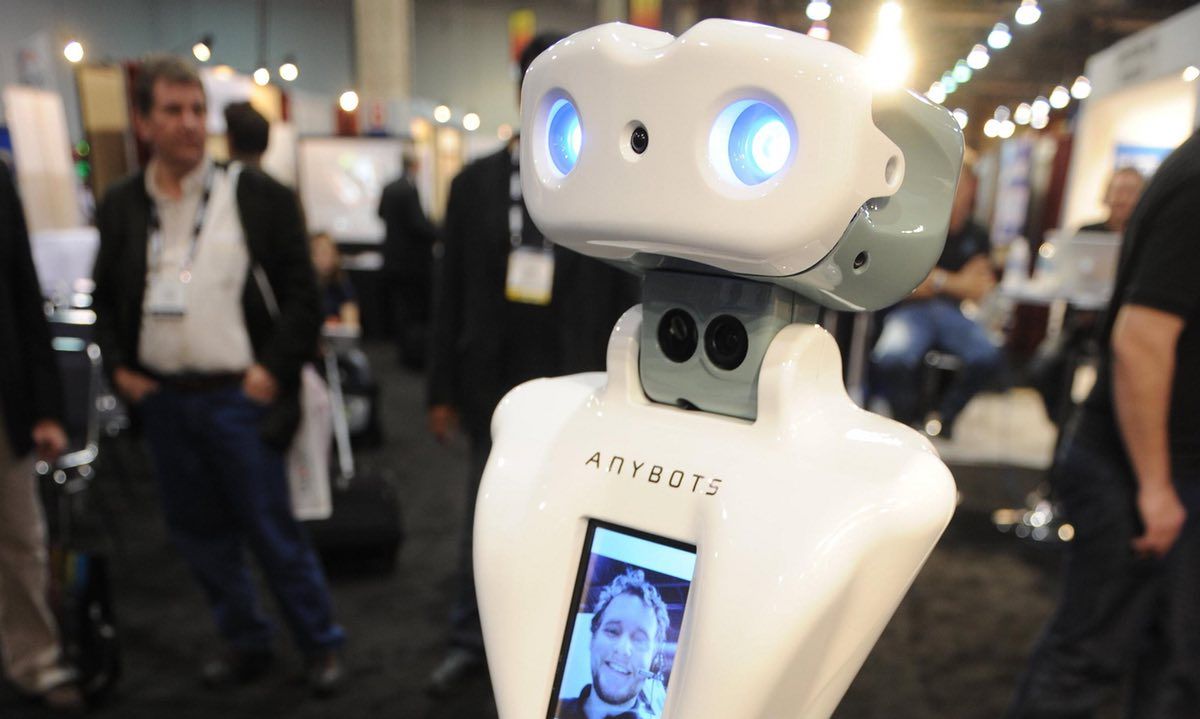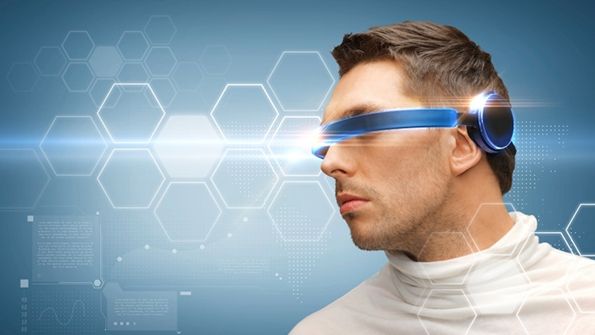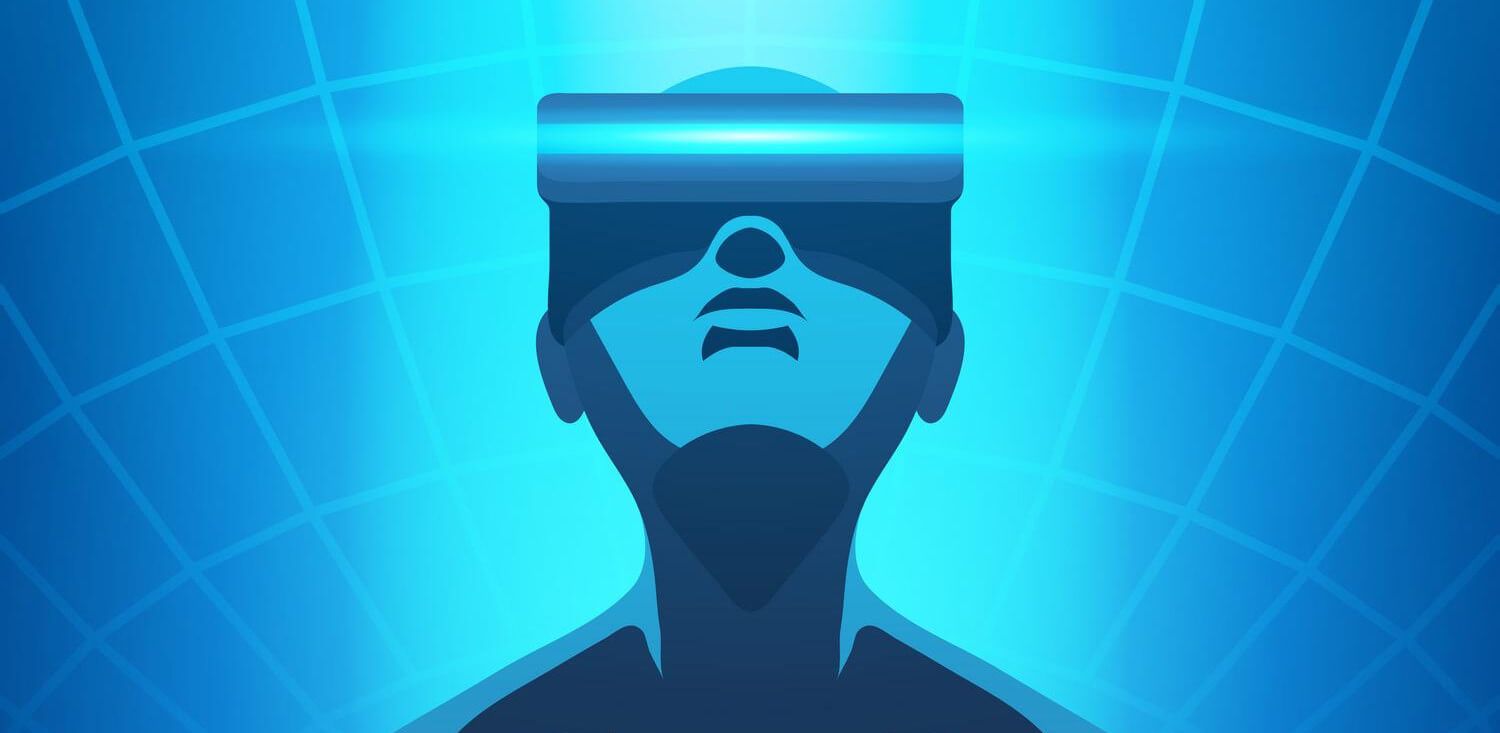This hand tracking software helps you to touch the future. #virtualreality
Category: virtual reality – Page 96

An engineer replaced his 4 monitors with Meta glasses — and it might be the future of work
I see VR & AR changing how the entire back office and front office interact with their applications, network, and platforms. In HR for example, VR will enable HR a new way to view candidates & the candidate’s video resume, with AR glasses/ contact lenses capabilities no longer does a person have to locate their tablet or laptop to entire changes/ideas/ etc. because with VR they can efficiently capture information on the spot, the list goes on. The bottom line is with VR/ AR, companies are more efficient in its operations.
Karyne Levy/Business Insider Meta CEO Meron Gribetz There’s … Continued The post An engineer replaced his 4 monitors with Meta glasses — and it might be the future of work appeared first on Business Insider.

New Virtual Reality Suit Lets You Reach Out & Touch ‘Environment’
And, this will only be the beginning because with the lightering weight materials that have been develop we will see some amazing VR suits coming.
Virtual reality could one day incorporate all the senses, creating a rich and immersive experience, but existing virtual reality headsets only simulate things you can see and hear. But now, a group of engineers wants to help people “touch” virtual environments in a more natural way, and they built a wearable suit to do just that.
Designed by Lucian Copeland, Morgan Sinko and Jordan Brooks while they were students at the University of Rochester, in New York, the suit looks something like a bulletproof vest or light armor. Each section of the suit has a small motor in it, not unlike the one that makes a mobile phone vibrate to signal incoming messages. In addition, there are small accelerometers embedded in the suit’s arms.
The vibrations provide a sense of touch when a virtual object hits that part of the body, and the accelerometers help orient the suit’s limbs in space, the researchers said. [Photos: Virtual Reality Puts Adults in a Child’s World].
Who’s Ready to Play Tennis in VR?
Selfie Tennis on the HTC Vive is too much fun! w/Jenn Duong.

Is this the future of work? Scientists predict which jobs will still be open to humans in 2035
1st; we all know in 30 years anything can change, wars can be fought & lost, natural disasters can occur, etc. However, posting for everyone’s amusement. 30 years ago which would be 1986; no one thought USSR would be broken up, 9/11 would happen creating the US Homeland Security, Lybia & Eygpt would overthrow their own leaders, that US Space missions would be outside the US Government, hacking at the levels we have today creating the CISO roles, of VR technology would exist, DNA and CRISPR would be discovered, etc.
So, who really knows what jobs will be fully automated v. not in 30 years or even created as a result of Quantum technology (Computing, Networking, Q-Dots for numerous thing that are not only technology, etc.). Just a fun article to share with everyone.
CSIRO says the Australian workplace of the future will be increasingly digitally-focused and automated, with titles such as online chaperone.

Virtual Reality: The Supply Chain’s Next Stage of Evolution
Years ago while I was still in college, I was able to experience what it was like working hands on in operations and logistics in retail. And, one of the most frustrating points was having to step away and log things on a desktop or try to locate your scanner to scan things in. I thought how wonderful it would be to be able to scan in receivables with my eyes and how much faster logistics would be. Although this article is from November; it highlights how VR really does improve things for companies, employees, and the quicker turn around time to customers.
A VR supply chain allows manufacturers to design and architect in 3-D, evaluate designs and make critical decisions about new products and customer buying decisions.

Zuckerberg warns on mobile future
Agree with Zuckerberg it’s a bad move on all tech fronts to ignore the developing countries and other less connected areas of 1st & 2nd world countries which is usually lower income areas. Also, VR & AR are going to be the experience that is going to be the platform where applications (including enterprise apps & platform services such as BI, etc.) are going to be and want to be in order to make the user experience and productivity more effective.
Facebook chief Mark Zuckerberg has warned the mobile industry not to ignore the unconnected, as he laid out plans use artificial intelligence to help bring remote parts of the world online.
The enigmatic CEO used a keynote speech at Mobile World Congress in Barcelona to express “disappointment” that the mobile industry was focused on areas like 5G rather than connecting those lacking in connectivity.
He warned that there was a danger of providing “faster connections” for rich people, and that there was a likelihood that when the Congress meets in 2020 the industry will have only made a small dent in the world’s number of unconnected users.

The Near Future of VR and AR: What You Need to Know
Like where VR is heading in the near future.
Unexpected convergent consequences…this is what happens when eight different exponential technologies all explode onto the scene at once.
This post (the third of seven) is a look at virtual and augmented reality. Future posts will look at other tech areas. And be sure to read the first two posts if you haven’t already:
When the World Is Wired: The Magic of the Internet of Everything.